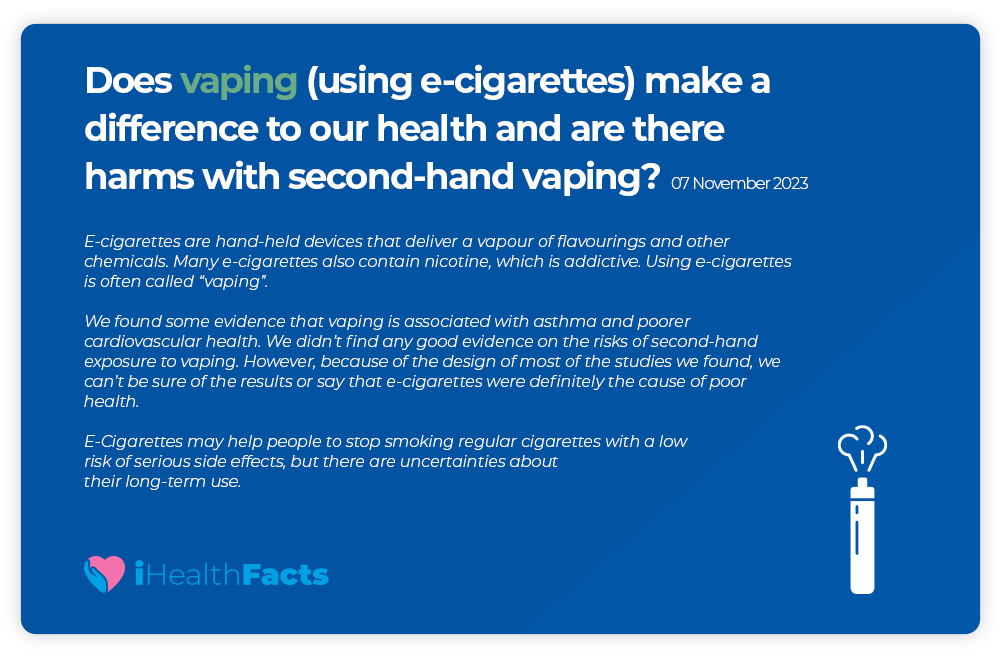- Lead Researcher: Dr. Kayleigh Kew, freelance evidence synthesis specialist with interests in technology, methods and innovation.
- Reviewed by: Dr. Paula Byrne, Senior post-doctoral researcher, iHealthFacts, Evidence Synthesis Ireland and Cochrane Ireland, College of Medicine, Nursing and Health Sciences, University of Galway.
- Topic advisor: Dr. Frank Moriarty, Senior Lecturer in Pharmacy at the School of Pharmacy and Biomolecular Sciences, Royal College of Surgeons in Ireland and visiting research fellow at The Irish Longitudinal Study on Ageing (TILDA).
- Public and Patient advisor: Anne Daly, Public and Patient Involvement in research (PPI) advisor, PPI Ignite, University of Galway.
- Journalist Advisor: Dr. Claire O’Connell, PhD in cell biology, Masters in Science Communication. Contributor to The Irish Times, writing about health, science and innovation.
Conflict of Interest Statement: The authors have no financial or other conflicts of interest for this health claim summary.
